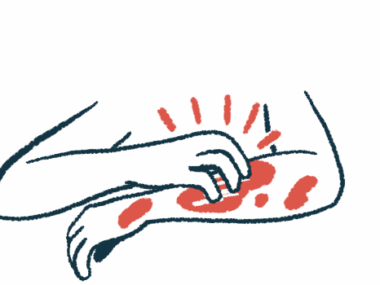Family History of Autoimmunity Greatly Boosts Risk for Primary Sjögren’s
Having parent or sibling with autoimmune disease can raise risk nearly 6 times
Written by |

People who have a parent or sibling with an autoimmune disease are nearly six times as likely to develop primary Sjögren’s syndrome (pSS) than those who have no immediate family with such health issues, a meta-analysis study has found.
Other risk factors for pSS include a history of pregnancy, having an infection, experiencing stressful life events, and carrying variant forms (polymorphisms) of IRF5, a gene that has been previously linked to an increased risk for Sjögren’s.
Nonetheless, “studies on larger and more geographically diverse populations are needed to clarify the range of risk factors for pSS, which may allow for more timely and accurate patient stratification,” researchers wrote.
The study, “Risk factors for primary Sjögren’s syndrome: a systematic review and meta-analysis,” was published in Clinical Rheumatology.
Meta-analysis included 18,215 people with primary Sjögren’s
Sjögren’s occurs when the immune system becomes overdriven in response to a number of genetic and environmental factors working in combination. What exactly triggers the immune system to go into overdrive is unclear, but some risk factors have been identified.
To identify more risk factors, a team of researchers in China conducted a type of analysis, called a meta-analysis, that combines data from a number of different studies from the available literature.
The team drew on data from 12 studies that together included a total of 18,215 people with pSS and 140,324 healthy individuals. Most studies used sex-matched individuals as controls.
All 12 studies looked into the link between risk factors and the development of pSS. Of note, primary SS is when no other related diseases are present.
Six potential risk factors, in particular, were analyzed: a family history of autoimmune disease, a history of pregnancy, infection, the number of negative stressful life events, polymorphisms in the IRF5 gene, and a history of smoking.
infection, a family history of [autoimmune disease in first-degree relatives], a history of pregnancy, the CGGGG … polymorphism in the IRF5 gene and negative stressful life events might be risk factors for pSS
Autoimmune diseases in first-degree relatives linked to 5.93 times higher pSS risk
Results showed that a family history of autoimmune diseases in first-degree relatives was linked to a 5.93 times higher risk of developing pSS.
Furthermore, women with a history of pregnancy were about twice as likely to develop pSS as those who had never been pregnant.
Sjögren’s occurs more often in women than in men, and hormones are likely to play a role. But while “changes in levels of estrogen and progesterone” occur during pregnancy, “further research is needed to study whether a history of pregnancy is directly related to the development of pSS,” the researchers wrote.
Having an infection increased the risk of developing pSS by 2.73 times, which is in line with mounting evidence that infections with bacteria or viruses can trigger disease onset.
“The mechanism involved may be that infection induces inflammation, leading to functional impairment of the affected organs and an over-stimulated immune system,” the team wrote.
Experiencing at least one stressful life event also increased the risk of developing pSS by 2.69 times.
Many people with Sjögren’s report experiencing depression and anxiety. “However, these negative emotions, which are commonly associated with long-term stressful life events, might also act as a key trigger for … pSS,” the researchers wrote. “In clinical practice, experts generally agree that long-term stress could lead to, or aggravate, a patient’s condition. The onset of pSS is slow and insidious and may be an outcome of the accumulation of stress.”
IRF5 gene variant associated with 1.69 times higher disease risk
Concerning the IRF5 gene link, this gene is turned on as soon as a virus enters a cell to help fight infection. Polymorphisms in the IRF5 gene have been previously linked to an increased risk for autoimmune diseases. The meta-analysis revealed that carrying a specific polymorphism, called a CGGGG insertion/deletion, in the IRF5 gene was associated with a 1.69 times higher chance of developing pSS.
Finally, four studies looked into the possible link between a history of smoking and the development of pSS, but failed to establish a significant association between the two.
However, being a current smoker seemed to be linked to less risk of developing pSS. While this finding could suggest that cigarette smoking protects against pSS, it contradicts the results of previous studies. Moreover, smoking poses many health risks, which means that “the possibility of a protective effect of cigarette smoking on pSS should not be emphasized, with earlier diagnosis and treatment being far more important,” the researchers wrote.
Overall, the data suggest that “infection, a family history of [autoimmune disease in first-degree relatives], a history of pregnancy, the CGGGG … polymorphism in the IRF5 gene and negative stressful life events might be risk factors for pSS,” the team concluded.







